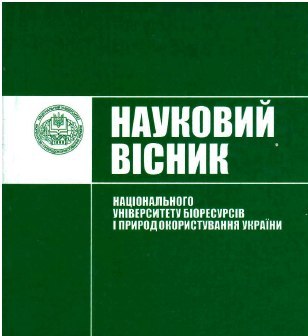Representation of idiomaticity in the translation of phraseological units
DOI:
https://doi.org/10.31548/philolog0(263).2017.042%20-%2050Abstract
The article highlights the problematic of translation and its phraseology, which is due to cross-language idiomatic difficulties with a translation of allphraseologisms abundance. The background for translatability is the logical way of thinking common to all peoples, which ensures the universality of the semantic field. Differences in language, in cultural and mental characteristics of nations are the reason the impossibility for transferring of the whole connotative coloring of phraseological units on a language of translation. The easiest and accessible method is the method of tracing that means the literal translation of phraseological units saving national coloring. By the absence of the source language idiom, corresponding to the original is offered on the basis of a comparative analysis of idiomaticity to find the equivalent of maintaining or not maintaining the base image, or use the descriptive method. The article pays much attention to the analysis of the impact of postmodernism on the practice of literary translation.
At the end, it is inferred that the special expression about the unity of a language, way of thinking, culture in idiomaticity, unity of the conditionality of the translatiton of phraseological units, on the one hand, the objectivity that is given by the imperatives of the dominant culture, and the other, ‑ the subjectivity ‑ by the thesaurus of a interpreter. According with the tasks what solving in the article, the main research methods were the comparative analysis, methods of analogy, a ascent from abstract to concrete but as the methodological basis is the theoretical statements W. von Humboldt, O. Potebni, their followers and a synergistic vision of the linquistic system considering postmodern transformations in culture.
References
Alekseeva M.L. (2016). Problema neperevodimosti v filosofskih issledovaniyah nachala XXI v [The problem of untranslatability in the philosophical research of the early 21st century]. Voprosyi filosofii, № 3, 51-61.
Alekseeva M.L. (2014). Osmyislenie fenomena neperevodimosti filosofami XX stoletiya [Comprehension of the phenomenon of untranslatability by the philosophers of the twentieth century]. Voprosy filosofii, № 2, 164-171.
Voloshyn F.M. (2016). Konotatyvnyi potentsial frazeolohichnykh odynyts' ta yoho vidtvorennya v khudozhn'omu perekladi (na materiali romanu A.Peresa-Reverte “Shkira dlya barabana”) [Connotative potential of the phraseological units and reproduction it in the art translation (based on the material А. Peresa-Reverta “A leather for a drum”)]. Fakhovyy ta khudozhniy pereklad: teoriya, metodolohiya, praktyka: zbirnyk naukovykh prats', 78-83.
Mizin K.I. (2006). Kohnityvne pidgruntya onomasiolohichnoyi struktury komparatyvnykh frazeolohizmiv yak movnoi universaliyi (na materiali nimets'koyi ta ukrayins'koyi mov) [Cognitive foundation of the onomasiological structure of comparative phraseological units as linguistic universal (based on German and Ukrainian languages)]. Movoznavstvo, №5, 73-80.
Shveytser, A.D. (2012). Teoryya perevoda (status, problemy, aspekty). Seryya: Yz lynhvystycheskoho nasledyya [Translation theory (status, problems, aspects). Series: From the Linguistic Heritage]. Lybrokom, 216.
Downloads
Published
Issue
Section
License
Relationship between right holders and users shall be governed by the terms of the license Creative Commons Attribution – non-commercial – Distribution On Same Conditions 4.0 international (CC BY-NC-SA 4.0):https://creativecommons.org/licenses/by-nc-sa/4.0/deed.uk
Authors who publish with this journal agree to the following terms:
- Authors retain copyright and grant the journal right of first publication with the work simultaneously licensed under a Creative Commons Attribution License that allows others to share the work with an acknowledgement of the work's authorship and initial publication in this journal.
- Authors are able to enter into separate, additional contractual arrangements for the non-exclusive distribution of the journal's published version of the work (e.g., post it to an institutional repository or publish it in a book), with an acknowledgement of its initial publication in this journal.
- Authors are permitted and encouraged to post their work online (e.g., in institutional repositories or on their website) prior to and during the submission process, as it can lead to productive exchanges, as well as earlier and greater citation of published work (See The Effect of Open Access).

